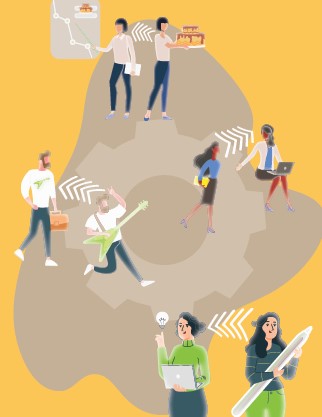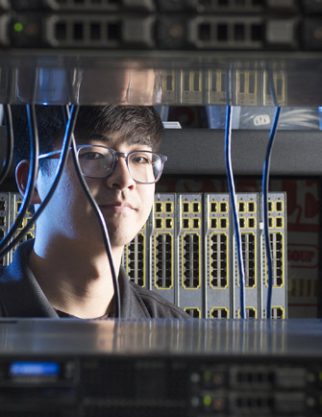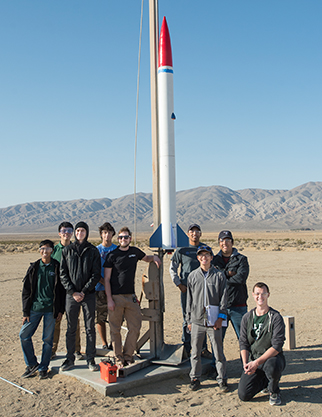Knowing the stress students were under this spring transitioning to virtual classes, Mathematics Associate Professor Jimmy Risk was looking for ways to relieve the pressure. So, he invited them to his island.
The island wasn’t off the coast of California. It was a virtual island in the new video game Animal Crossing: New Horizons. In the game, every player has their own island and enough resources to create their version of paradise and can invite others to visit. Risk, a regular gamer, started playing the day the game was released, which coincidentally was a few days after the university moved to virtual instruction.
Known for creating fun, original questions for exams and homework in his statistics classes, Risk started adding a few questions based on the game. For one problem, students had to determine the probability of players obtaining octopus villagers – local villagers are all adorable animals – in the game using real data.
“I really wanted to find a way to make the students feel more comfortable during these hard times, so anything I can do to ease their mind is great to me,” he said. He found the game relaxing and thought his students might be playing too.
RiskRisk also tested Discord, a communication app favored by gamers, as a way of communicating with students. He found it “invaluable.”
“Well over half of the students already had Discord accounts,” he said. “The amount of interactions I had with students on Discord was significantly higher than the combined email and in-person office hour interactions I had before the switch to virtual… I could also communicate with the students very quickly. When their questions were asked in a public Discord chatroom, it was also available for everyone to see, so similar questions that other students had could be answered this way. I only had one or two students ask questions by email.”
Risk received lots of positive feedback on Animal Crossing and even had a viral moment on Twitter. But these apps are more than just fun and games. It’s about finding a connection with students, especially during a time when human connection is much needed.
I made an Animal Crossing classroom for my students to take their online exam in, since they couldn’t take it in person pic.twitter.com/ZGalJx7ztP
— jimmy (@jimmypoopins) May 13, 2020
For computer science senior Mai Luu, using Discord made the professor feel more approachable. “I asked him many more questions and his response was fast.”
For the final exam in his Introduction to Statistics for Computer Science and Engineers (STA2260) class, Risk went all out, creating a virtual classroom in Animal Crossing and inviting students’ avatars to visit in game during the exam. He spent several hours creating the biggest house possible on his island and borrowing in-game items from a friend to furnish the room with desks, classroom-appropriate chairs, inkwells, blackboards and a white board, and a laptop.
About five students from each of his two sections took advantage of the just-for-fun offer. Students without the game could see the virtual classroom on Twitch (a live streaming video app for gamers) during the test. In the real world, the exam was online, timed and had randomized questions.
“I wanted to give students the ‘final exam setting’ feel, in case they wanted that,” Risk said.
It helped Luu, who found the final “less stressful because the cuteness of the game brought relaxation.”
Senior Justin Tagalogon-Nguyen, computer science, enjoyed the experience so much that he shared a screenshot on Reddit and got 6,000 likes.
“It was really cute and heart-warming, and I wanted to share with others how cool my professor was,” he said. “I let [him] know, and he posted it to twitter and got over 100k retweets.”
“This experience made me realize the huge impact a professor can have on a students, not only academically, but mentally,” Tagalogon-Nguyen added. “I believe he was a beacon of support that helped all of his students during a stressful situation…. I failed this class the first time I took it. With Professor Risk, I received an A.”











